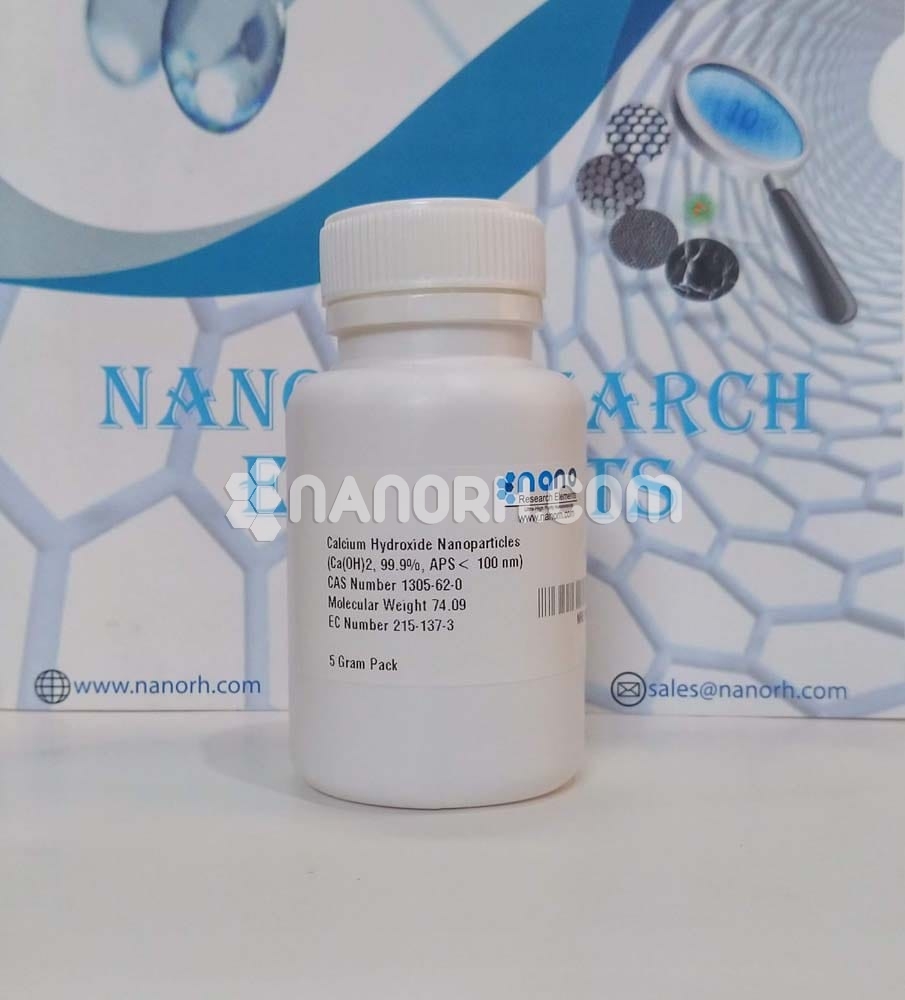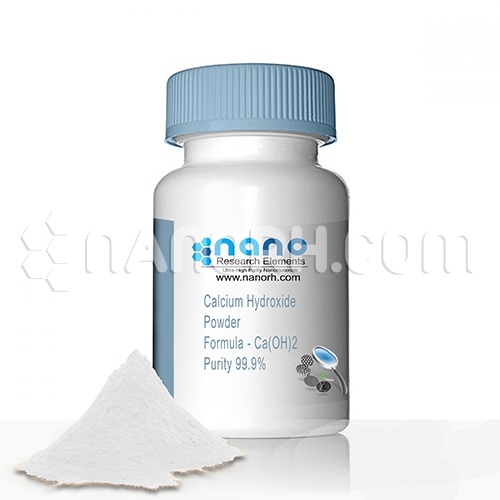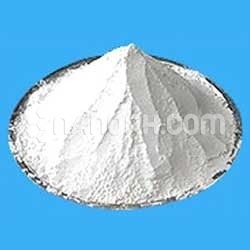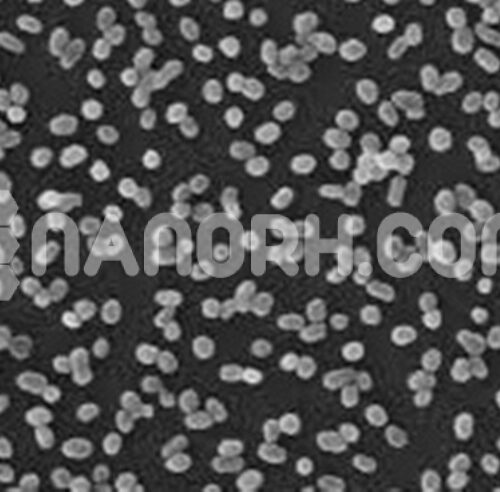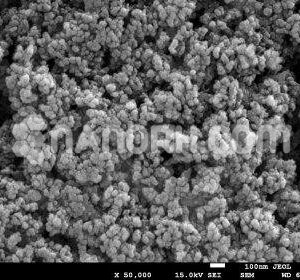Calcium Hydroxide Powder
Calcium Hydroxide Powder
A significant application of calcium hydroxide is as a flocculant in the treatment of water and wastewater. It forms a soft charged solid that helps remove smaller particles from the water, resulting in a lighter product. This application is possible thanks to the low cost and low toxicity of calcium hydroxide. It is also used in the treatment of freshwater to increase the pH of the water so that the pipes do not corrode where the base water is acidic since it is self-regulating and does not increase the pH too much.
| Calcium Hydroxide Powder | |
| Product No | NRE-10012 |
| CAS No. | 1305-62-0 |
| Formula | Ca(OH)2 |
| Molecular Weight | 74.09268 g/mol |
| APS | <40 μm (can be customized) |
| Purity | 99.9% |
| Density | 2.21 g/cm³ |
| Color | White |
| Melting Point | 580 °C |
| Boiling Point | 2,850 °C |
Calcium Hydroxide Powder
A significant application of calcium hydroxide is as a flocculant in the treatment of water and wastewater. It forms a soft charged solid that helps remove smaller particles from the water, resulting in a lighter product. This application is possible thanks to the low cost and low toxicity of calcium hydroxide. It is also used in the treatment of freshwater to increase the pH of the water so that the pipes do not corrode where the base water is acidic since it is self-regulating and does not increase the pH too much.
Applications
Water Treatment and Purification:
Water Softening: Calcium hydroxide is widely used in water treatment plants for softening hard water. It reacts with calcium and magnesium salts to form insoluble calcium carbonate and magnesium hydroxide, which are removed from the water.
pH Adjustment: Ca(OH)₂ is used to neutralize acidic water and increase pH in various industrial processes, including drinking water treatment.
Fluoride Removal: It is also used to remove fluoride ions from drinking water, making it safer for consumption.
Construction and Cement Industry:
Lime Mortar: Calcium hydroxide is an essential ingredient in lime mortar, used for bricklaying and stone masonry. It helps bind materials together, improving the durability and workability of the mortar.
Cement Manufacturing: It is involved in the production of Portland cement, where it acts as a precursor during the calcination of limestone and burning of raw materials.
Soil Stabilization: In civil engineering, calcium hydroxide is used to improve the properties of soil, such as reducing soil plasticity and increasing soil strength, which is important for road construction and building foundations.
Agriculture:
Soil Amendment: Calcium hydroxide is used to raise soil pH in acidic soils, making it more suitable for growing a variety of crops. This process is called liming.
Fertilizer Production: It is used in the production of certain fertilizers to balance pH levels in the soil and improve nutrient availability.
Pest Control: It has fungicidal properties and can be used in agricultural applications to control fungal diseases in plants. It is also a component in lime sulfur sprays for controlling pests and diseases in orchards and vineyards.
Chemical Industry:
Chemical Manufacturing: Calcium hydroxide is used in the production of various chemicals, including calcium salts (like calcium carbonate, calcium chloride), sodium hydroxide (through the lime soda process), and bleaching powder.
pH Control in Reactions: It is used to maintain alkaline conditions in chemical reactions, especially in the production of other chemicals like sodium carbonate and magnesium hydroxide.
Neutralization: It is used to neutralize acidic waste and help detoxify acidic industrial effluents.
Food and Beverage Industry:
Food Additive (E526): Calcium hydroxide is used in food processing as an additive under the code E526. It is primarily used in the production of limewater, which is then used to process sugar and make pickles.

